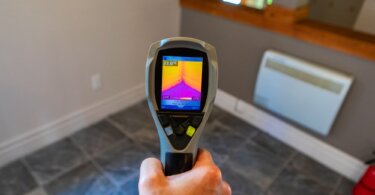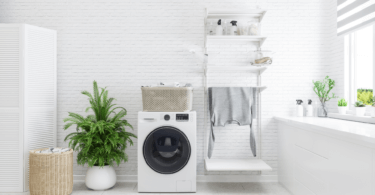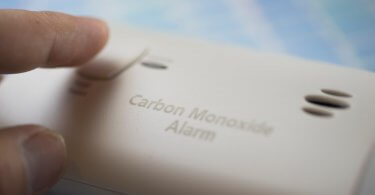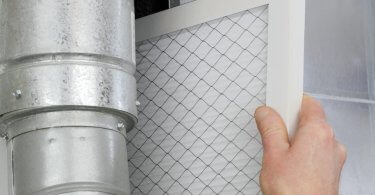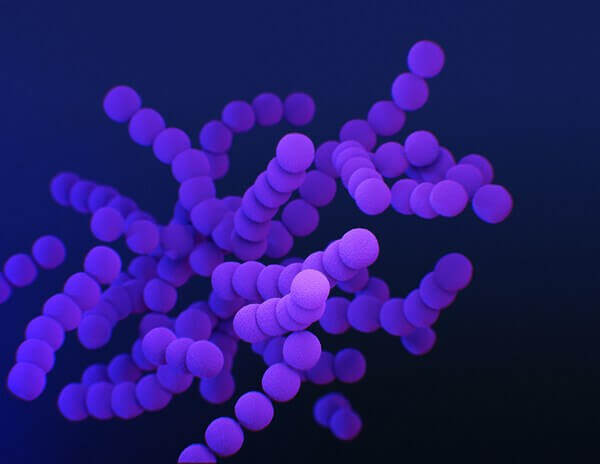
Germs are infectious and they exist everywhere: in the air, food, water, home surfaces, and even on your body. They can pose serious health risks if they are allowed to thrive uncontrollably. It is a common idea to try using heat to kill germs but the question is what temperature kills germs?
The Best Air Purifier to Eliminate Bacteria and Viruses
Does Heat Kill Germs?
It depends, as not every heat can kill germs. A temperature of 165 F – 250 F will kill most germs yet some viruses can’t be killed by the most extreme heat. This is because they don’t have a regular structure that can be destroyed by heat. The exact temperatures that kill germs, however, depend on the microbe and how long it stays in the heat. For example, salmonella is killed when it is heated to 131 F for one hour, 140 F for half an hour, or 167 F for 10 minutes. Cooking meats to ensure they are germs free also demands some caution. You don’t want germs and you don’t want to overcook your food either. Therefore, you need to know the safe internal temperature required for the type of meat you are cooking.
When using hot water to destroy germs in the house, be sure to use boiling water. Germs will die when under extreme temperatures for a considerable amount of time. In the reverse, some temperatures do not kill germs, but rather multiply them. Bacteria thrive most and spread faster when they are exposed to temperatures between 40 F – 140 F over an extended period. This is called the “danger zone”. It is advised to keep hot food above 140 degrees and cold foods below 40 degrees to avoid the danger of consuming harmful bacteria.
Does Cold Air Kill Germs?
Cold air doesn’t kill germs but it can keep them from spreading. Cold weather restricts the growth of bacteria. At 32 degrees Fahrenheit or lower, you will get virtually all bacteria or viruses to be inactive. They can stay that way for as long as possible and wait until they find optimum conditions and start growing again. This is why it is possible to get exposed to the E. coli bacteria or other germs through frozen foods.

Cold weather can also cause the spread of germs. One common disease during cold periods is flu. It is caused by a virus called influenza. The dry air during winter causes humidity levels to drop and this is the reason most people get flu in winter. Humidity affects how the flu is able to survive and spread. The flu virus, therefore, thrives in low humidity.
RELATED: Humidifier vs Air Purifier: Which One Do You Need?
6 Ways to Keep Germs from Spreading Around Your House
In order to keep germs from spreading around your house, you need to know what influences this process. Germs can spread around the house through contact, air (coughs and sneezes), raw foods (e.g. salads), animals and pets, poor hygiene, and through children. Highlighted below are effective ways to contain germs and stop them from spreading around your house.
Use Sanitizers & Disinfectants
You can stop the spread of bacteria in your house by using sanitizers and disinfectants. Sanitizers are used to reduce germs on a surface by at least 99.9%. Disinfectants work more effectively for killing a broad range of germs and can be applied to larger surfaces such as floors, sink, etc. They can also be applied to touchpoints like doorknobs, handles, etc. Bleaches are good disinfectants: they can remove dangerous bacteria, such as salmonella, E. coli, staphylococcus, and streptococcus. Wash and sanitize your hands often, especially after using the restroom, changing diapers, touching animals or other dirty surfaces.
Clorox Disinfecting Bleach Free Cleaning Wipes
Empty your wastebin regularly
The waste bin is one of the top hot spots for germs in your house. Apart from odors from decaying leftover foods, you may be breeding tons of germs if you leave your waste bin for too long. You also need to disinfect the waste bin regularly to keep your kitchen free of germs. While the bin in the kitchen often gets attention, the ones in other rooms might not be so lucky. Because these waste bins are usually dry and don’t generate odor like those in the kitchen do, we often forget to empty them. Germs do multiply on used tissue papers and cotton buds too, therefore ensure that you empty them.
Handle foods carefully
Meats and poultry products should be well cooked to a safe internal temperature before consuming them. When preparing raw foods such as salad, make sure to do it with clean, sanitized hands. And only get your vegetables from a trusted store to ensure that you are not eating contaminated foods. Remember to always keep your food out of the danger zone. Put cooked food in containers where they can get cooled faster and then store in a refrigerator. If your food stayed in the kitchen for too long, you can reheat it and refrigerate it as soon as it reaches room temperature.
Best Food Storage Containers
Change beddings often
To keep germs away from your house, be sure to change bedding, linen, towels, and other similar items often. Do this more often if someone is sick in the house. Proper laundry and disinfection should also be done for these materials. Depending on the type of fabric, you can use bleach or boiling water to kill the germs before washing and reusing the items. Lastly, make sure you dry the clothes properly before storing them for the next use.
READ ALSO: What Do Dust Mites Look Like
Watch after your children
Children are key transmission agents of germs. They pick germs while playing with friends at school or in the neighborhood and bring them home for you to deal with. Children need to be guided on how to stay clean and keep proper hygiene. They should be taught how to wash and sanitize their hands whenever they get exposed to contaminated surfaces. Some children are quite young, so their activities will have to be monitored even at home to ensure they are not helping to spread germs around your home.
Watch after pets
Keep your home healthy by ensuring that animals and pets are tidy and do not inhabit germs. Animals can harbor germs and microbes, and these can be contacted by human beings. Be sure to maintain hygiene for your pets and remove their excreta from surfaces as soon as possible. Have your pets undergo regular check-ups and treat them properly whenever they come down with any disease.




